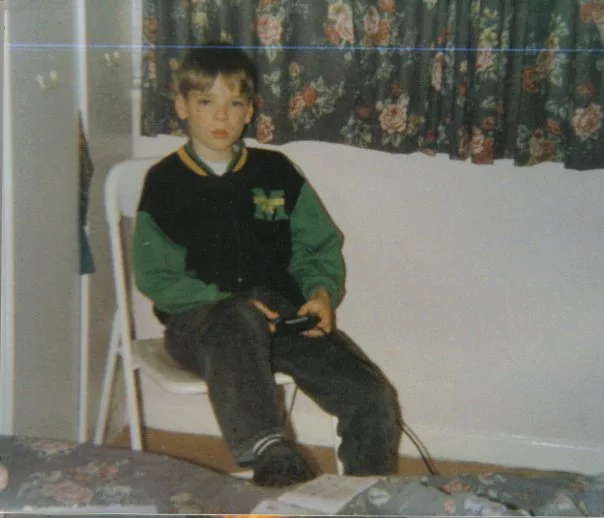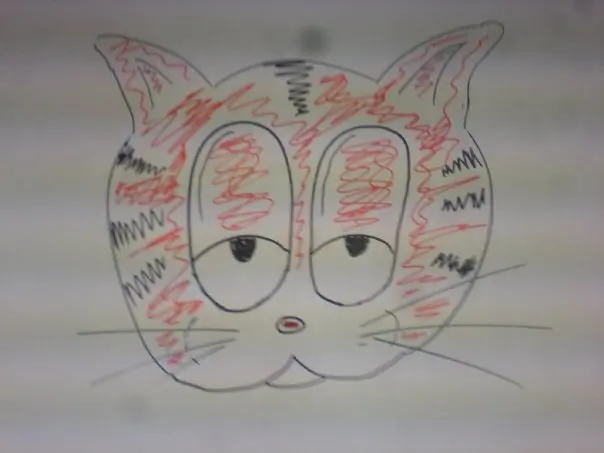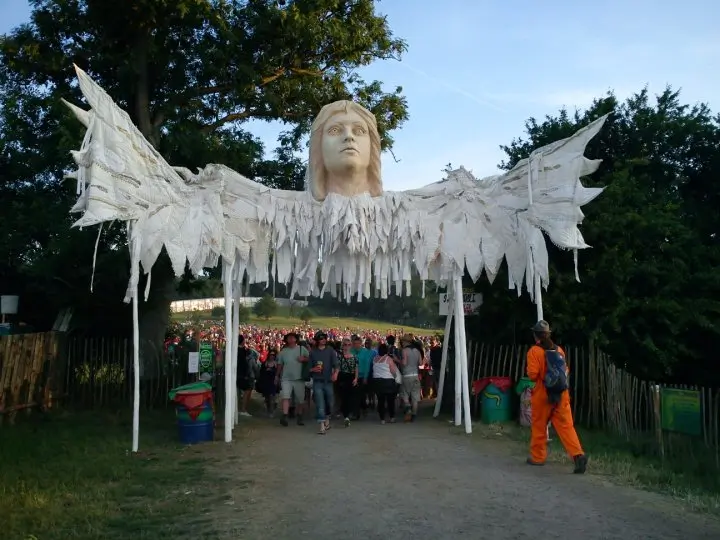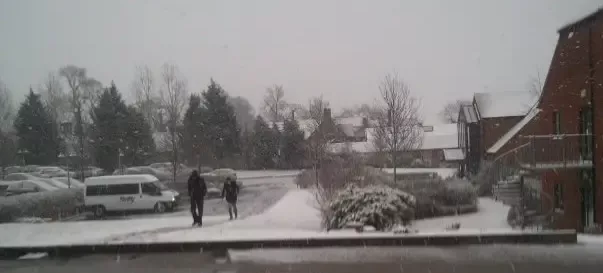Sometimes you can do something that seems so insignificant to you yet has a long lasting effect on someone else. Like the butterfly that flaps its wings and ends up causing an typhoon on the other side of the planet. This is the story of how a text message changed the entire course of my life.
The Dream Job
To tell the story we have to go all the way back to my childhood. When I was seven years old I got my hands on a Commodore 64, my first ever computer. I learned that I could just tell it to do things, and those things could become games, and then I could play those games. It was my earliest introduction to both programming and video games, and it soon became my dream to one day be a real game developer.

Skip to 2006 and I had earned a BSc in Computer Games Technology with 2:1 honours. Armed with a piece of paper signed by Cherie Booth, I sought to find my dream job. I applied everywhere that I could. I received a lot of rejection letters, and had a few interviews ranging from lackluster to embarrassing. I looked good on paper, but in person I struggled to give a good impression. After searching for months I lost faith. I gave up. I sent one last application and decided to stop searching after that.
Then I got a response to that application.
So I went to Derby, the birthplace of Tomb Raider, though I wasn’t destined to work for Core Design. I was interviewing with a company called Eurocom. And this one didn’t go terribly for once. They actually seemed to like me. About a week later they offered me my dream job.
Beijing 2008: The Official Video Game of the Olympics
The first game I was ever be a developer on was Beijing 2008. I could tell a lot of stories about developing the game, the people I met, and my life in Derby, but I’ll keep it short. This story is supposed to be about a text message.
Initially development was fairly relaxed. We’d get a list of features to implement, have a month to implement them, and deliver them to Sega (our publisher). There were a couple of nasty crunches when deadlines were close (one ended up in a 27 hour shift), but for the most part it wasn’t too crazy.

Then we got closer to release in 2008 and suddenly a huge list of features was introduced. Everyone could see it was a significant amount of work, and we wondered why we hadn’t been told about these requirements sooner1. Thankfully, Eurocom had the perfect solution. They’ll just make everyone work 12 hour shifts every day, for seven days a week, for months. Also, they would feed us with pizzas, Chinese fast food, and fish and chips.
This. Was. Hell.
It was my first experience of crunch, and ultimately, burnout. Literally my entire life was stuck in front of a fucking screen in an office for months. I started refusing to work weekends so I at least had some time to myself, but the management would constantly remind me I was letting the rest of the team down and putting more work on my colleagues. One day I slept in and showed up ten minutes late. The producer dragged me into his office and berated me for it. Told me I wasn’t a team player, that I was unprofessional, and unwilling to put any effort into my work.
It got so bad that after waking up in the morning and remembering where I needed to be that day, I’d break down into tears.
Glastonbury
A few years before I started at Eurocom I had heard about Glastonbury. I had always wanted to go, but I couldn’t convince anyone to go with me. In 2008 I was stuck in a seemingly endless crunch, and I noticed Glastonbury was coming again. This time I needed something good to happen. I knew that I may not be able to find anyone to go with me. So I thought, fuck it, I’m going solo.
I got my ticket and I was ready. I would have to miss the headliner on Sunday, since I could only legally take weekends off and there was no way I was getting a holiday approved. But I was finally going to Glastonbury.
At Glastonbury I wasn’t lonely for long. I met a lot of people there. I saw the Kings of Leon headline the first night. The next day I watched Amy Winehouse, followed up by Jay-Z’s diss of Noel Gallagher. On the Sunday the Verve were headlining.
They were a big deal for me. They originally came from Up Holland, a small village right next to my hometown of Skelmersdale. One of my friends in Liverpool was texting me, asking me if I was looking forward to seeing them. I told him that I was going to have to miss them. Then he sent me the message.
Fuck the job. I love the Verve.This message was the reason I decided to see the Verve. I could just call in sick the next day. Hopefully it wouldn’t be too obvious I was actually at a festival.
I didn’t realise it at the time, but this decision would set the path for the rest of my life. It was my butterfly wing. Later that night, as the Verve started playing Bittersweet Symphony, I sent my friend the exact same message back: Fuck the job. I love the Verve.
I had spent the last couple at a part of the festival known as Green Fields. It had a very hippie vibe: drum circles, dancing round the fire, that kind of thing. I went again after the Verve, and I was in such good spirits. I ended up meeting a lot of really nice people, and it was the most fun I’d had in a long time. I felt like I was finally alive again.

I stayed up all night, talking and drinking with complete strangers. Eventually the sun rose, and I remembered I’d need to call in sick. My phone was out of power, but one of my new friends let me borrow his phone. Unfortunately I couldn’t get a signal, no matter where I tried.
They’re gonna tear me a new arsehole, I thought.
Consequences
I took the train home and contemplated my next move. By this time, the game had been released, but it still needed a few patches to make it work properly. The team was still in crunch for that reason.
I was the only one who knew how certain features worked. They wouldn’t fire me. All I needed to do was apologise profusely and take whatever bollocking they gave me for this. In the long run, it would be fine. I went to sleep, so I’d be ready to get back to work on Tuesday.
I woke up in the middle of Wednesday.
Fuck! I was in a panic. It’s fine, I told myself, they still need me. They won’t fire you. Just call them now and apologise. I managed to calm myself down and picked up my phone.
But another voice started talking in my head. It just said, Why?
I realised what I actually needed to do. I went to my PC and I typed out an email explaining that I wouldn’t be coming back to work, since “it was obvious our professional relationship had been declining for a long time”. And that was it. I was free.
I spent a few months on sabbatical, travelling the country with the money I had saved. But that money wouldn’t last. I would have to find a new job eventually.
After Eurocom I had decided to give up on the games industry. I applied for software developer jobs in multiple fields. But I found that no matter where I applied, I couldn’t get anywhere. My technical skills were good, but game development is different to other fields of programming, and I was still too junior to be able to adapt to new environments.
Eventually I started running out of money, so I decided to try the games industry again. The response I got was a lot more encouraging than it was fresh out of university. Every company wanted to interview me. It turns out that a couple of years experience and a released game gets you a lot of clout.
One of the interviews I had was for Codemasters – the largest independent game developer in the country. With games like Dizzy and Dirt I really wanted to work for this company. I interviewed with two teams and was offered a position with their First Person Shooter team.

To this day, Codemasters remains one of the best jobs I’ve ever had. They treated their staff with respect, and repaid crunch with extra time off. And it was the start of a journey that would lead me to London, China, Ireland and many other places in-between.
All of this because of an important lesson that single message taught me: never put your job ahead of living your life.
Fuck the job. I love the Verve.
Afterword
People continued to crunch at Eurocom to get the patches out, and they pulled it off in the end. Despite competition from Sega’s own Mario and Sonic at the Olympics, it was a pretty fun game for a button-basher. Eurocom would go on to to develop more games, including Vancouver 2010, and a well-received Goldeneye game, before closing its doors in 2012.
I would stay with Codemasters and develop two games with them: Operation Flashpoint: Dragon Rising, and Operation Flashpoint: Red River. Even though I loved the company, I would eventually I get bored of life in Royal Leamington Spa and choose to move to London instead.
But that’s a story for another time.
Notes
1/ I don’t think Sega suddenly dumped all these feature requests on us. I think they had been in the pipeline for a long time, just management decided not to tell us about them until the last minute.
2/ Unfortunately I don’t have any pictures from my first time at Glastonbury. This is from a few years later.




